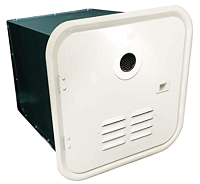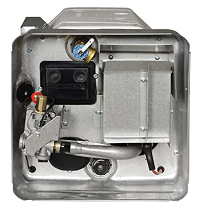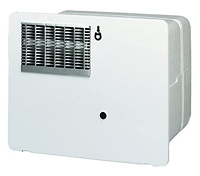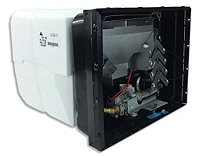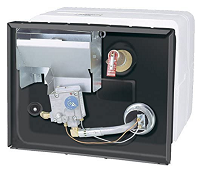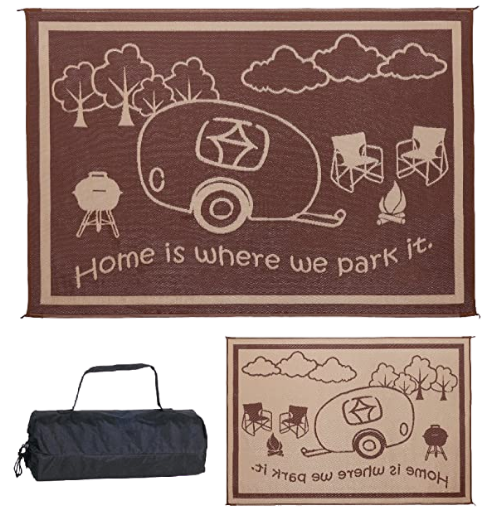Family vacations are some of the most cherished moments we share, creating lasting memories and bringing…
5 Minute Guide to RV Water Heaters
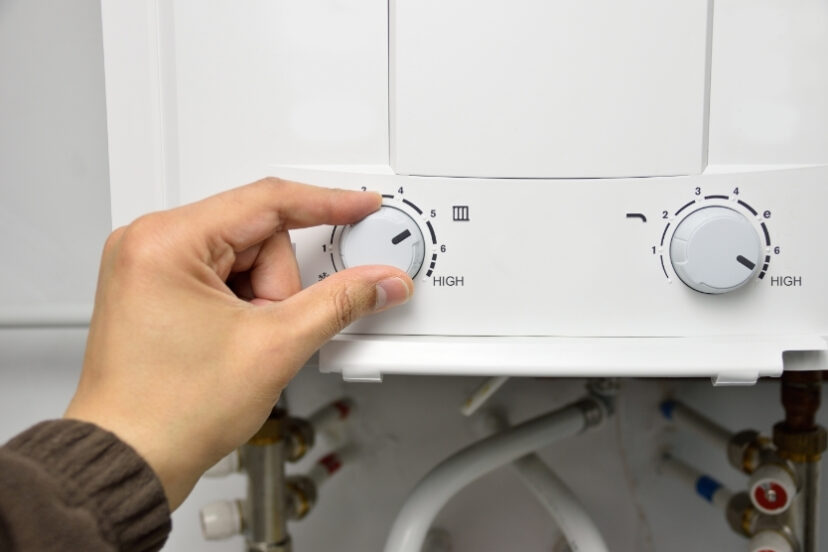
Without a doubt, one of the huge advantages of RV life is the ability to take the modern comforts of your home onto the road with you.
Well-equipped RVs provides you with that “home away from home” feeling.
One of those modern comforts is some hot water; after all, what is more relaxing than a nice steamy shower?
Your RV’s water heater is the key to providing this modern amenity, and it’s useful to have some understanding of how yours works before heading out on the open road.
Heat Sources
RV water heaters use three main sources for heat. Some are propane-based. For those water heaters, the more propane used, the hotter the water. The propane for these water heaters can become expensive, especially if you’re a heavy hot water user.
Other RV water heaters are electric. Simply turn the hot water heater on, wait for it to heat your tank up, and then enjoy hot water. The downside to these types of heaters is the time you need to wait for the water to warm up.
The third type of RV water heater uses heat from your engine to warm the tank. This is an incredibly efficient source of energy if you’re going to be running your engine a lot.
Otherwise, your water will only stay warm for so long.
Types Of Water Heaters
The traditional RV water heater is a six to ten gallon tank. The tank sits either in the sidewall of your RV or near the engine compartment if it’s heated by the engine.
These types of water heaters tend to be fairly economical. The biggest drawback is their size. These water heaters are quite small, so there is a limited supply of hot water available.
This can make showers a challenge unless you’ve mastered the art of the quick lather and rinse.
Another type of RV water heater is a tankless, on-demand system. These are also located in the RV sidewall and are usually powered by electricity.
Tankless water heaters are a great option if you have heavy hot water needs because you will never run out. The tank simply keeps generating as much hot water as you use.
The only disadvantage of using a tankless heater is its price, as these tend to be much more expensive than their traditional counterparts.
Purchasing Tips
If you are debating on purchasing a new water heater for your RV, there are a couple of questions you should consider to help you decide.
First, what are your hot water needs?
Do you find yourself running out of hot water frequently with your current set up?
If so, you may want to think about going tankless. If not, simply upgrading to a more efficient traditional model may be your best bet.
Maintenance Tips
Your RV’s water heater needs regular maintenance, just like your water heater at home. It should be cleaned once a year, at a minimum.
Be certain to follow the schedule suggested by the manufacturer in order to help prolong the life of the unit.
Your water heater should be examined by a professional at least once a year, as well.
Storage Tips
Drain your RV’s hot water tank prior to storing it for the winter. If your tank comes with a bypass valve, this should be used during winter storage.
Keeping water in the tank could lead to extra corrosion and rust. Prior to heading out for the season, be sure to fill the water tank and turn off the bypass valve.
Odds are, you enjoy having hot water when on an RV trip. Keeping your RV’s water heater in good working condition will help make your next adventure full of modern comforts.
Finding high quality RV water heaters can sometimes be difficult. Fortunately, I’ve done some research for you and combed through the internet to find a few solid options.
Girard 2GWHAM On-Demand Tankless RV Water Heater
Features:
- Regulates the burner to maintain the set hot water temperature
- 42,000 BTUs which provides the optimum performance for an RV’s plumbing
- No special LP gas lines or special plumbing required
- Quiet brush-less motor
- 12 V power that operates at less than 3 A; Freeze protection – designed for winter use
Item Weight: 21.2 pounds
Product Dimensions: 14.5 x 17.8 x 14.6 inches
Customer Rating: 4.2 out of 5 stars
SUBURBAN MFG 5243ASW10DE 10-G RV Water Heater
Features:
- 10 gallon water tank
- 12,000 btu rating
- Ignition Type – Direct Spark Ignition
- Porcelain-lined
- 12,000 BTUH input and a recovery rate of 10.2 gallons per hour
Item Weight: 46
Product Dimensions: 9.99 x 9.99 x 9.99 inches
Customer Rating: 4.7 out of 5 stars
Atwood Mobile 96121 Electronic RV Water Heater
Features:
- Capacity is 6 gallon liquid propane gas
- Input is 8,800 British thermal units
- Recovery rate is 7.4 gallons per hour
- Shipping Weight is 25 pound mass
Item Weight: 20 pounds
Product Dimensions: 20.2 x 17 x 14.6 inches
Customer Rating: 4.3 out of 5 stars
Atwood G6A-8E RV Water Heater
Features:
- 6 Gallon Capacity
- Direct Spark Ignition
- Input 8,800 BTU
- aluminum clad tank
- 95% of the parts can be replaced or serviced through the outside door
Item Weight: 21 pounds
Product Dimensions: 25 x 23.25 x 21.25 inches
Customer Rating: 4.4 out of 5 stars
Atwood Mobile 96110 Pilot Ignition RV Water Heater
Features:
- Capacity is 6 gallon liquid propane gas
- Input is 8,800 British thermal units
- Recovery rate is 7.4 gallons per hour
Item Weight: 14.3 pounds
Product Dimensions: 20 x 17 x 14.3 inches
Customer Rating: 4.5 out of 5 stars
Conclusion
You just received a five minute overview on RV Water Heaters, which are essential to providing that modern amenity of hot water while out on the open road during your adventures.
No matter which option you choose for your RV, be certain that you follow the maintenance guidelines to increase the life of the unit.
Have fun and be safe!

